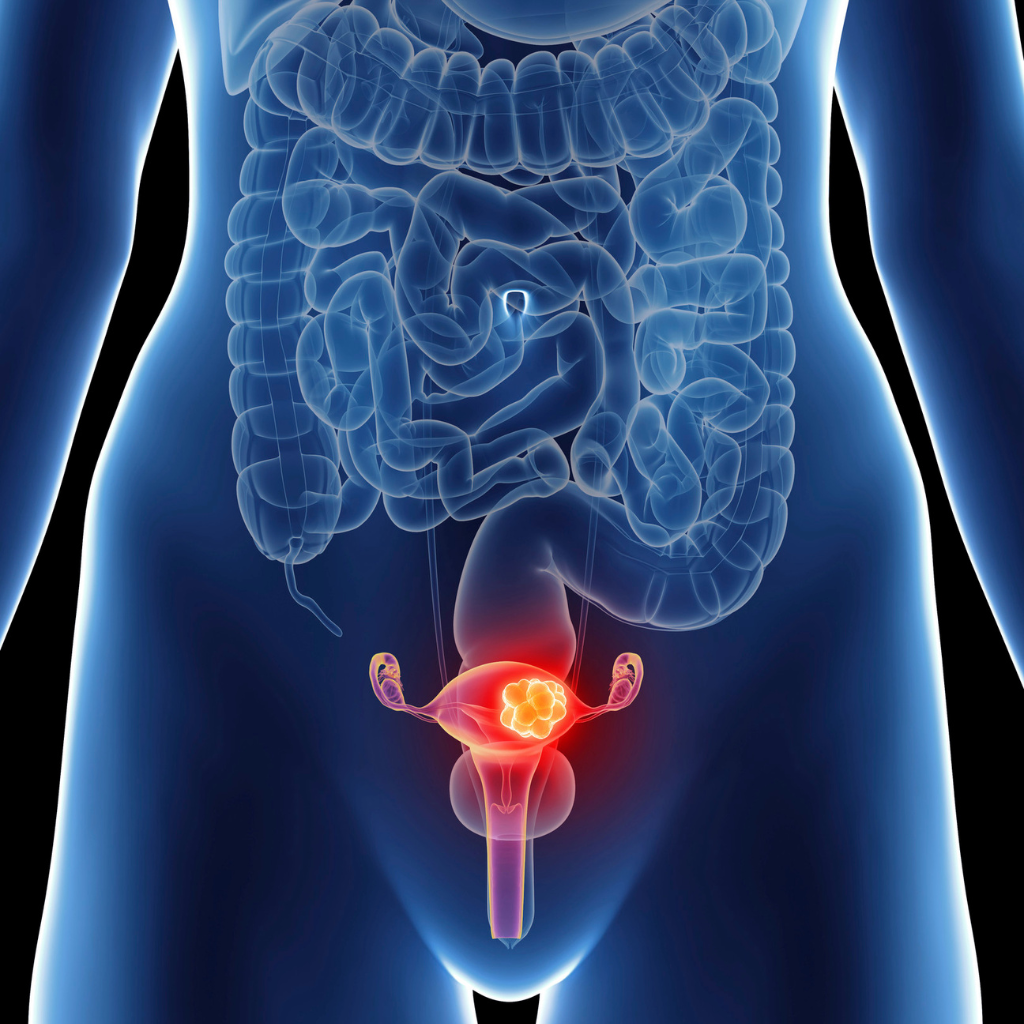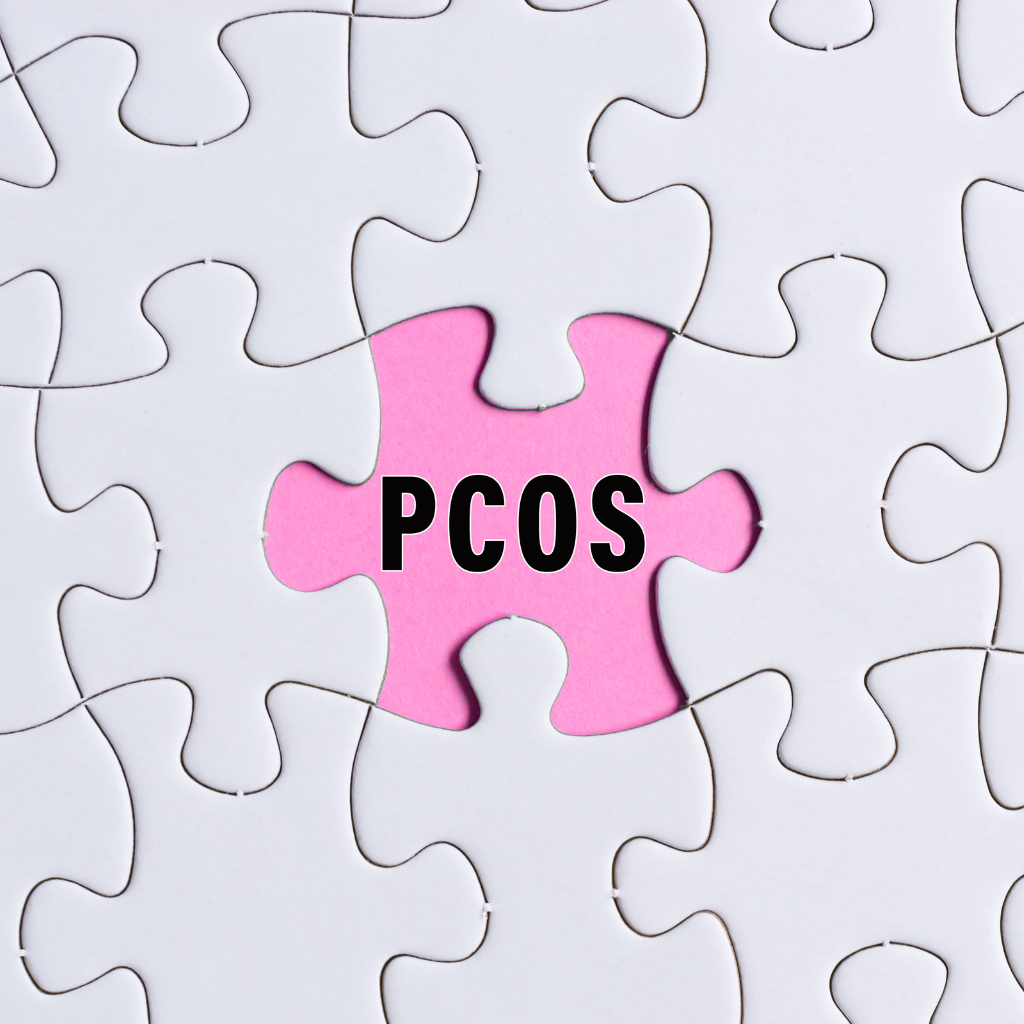Polycystic Ovary Syndrome (PCOS) is a frustrating and often debilitating condition that affects many women of reproductive age. But there’s good news: With the right knowledge and treatment, it’s possible to manage and even overcome PCOS symptoms. That’s why each September, we celebrate PCOS Awareness Month.
In this article, we’ll explore what PCOS is, its symptoms, and what you can do to take control of your health and well-being. Whether you’re newly diagnosed or have been living with PCOS for years, this guide will provide valuable information and resources to help you live your best life.
What Is Polycystic Ovary Syndrome (PCOS)?
Polycystic Ovary Syndrome (PCOS) is a common hormonal disorder that affects women of reproductive age, with an estimated 1 in 10 women being affected. The exact cause of PCOS is still not fully understood, but it is believed to be related to a combination of genetic and environmental factors.
Irregular Menstrual Cycles: Women with PCOS often experience irregular periods, which may manifest as infrequent, heavy, or prolonged menstruation.
Ovulatory Dysfunction: PCOS can lead to irregular ovulation or a lack of ovulation, making it a leading cause of female infertility.
Androgen Excess: Elevated levels of androgens, often referred to as “male hormones,” can lead to physical symptoms such as acne, excessive hair growth, and male-pattern baldness.
Cysts on Ovaries: The ovaries of individuals with PCOS may contain small, fluid-filled sacs called cysts.
What Are The Symptoms Of PCOS?
Polycystic ovary syndrome (PCOS) is a complex condition that can manifest in a plethora of ways and can differ in severity from person to person. Some of the most commonly experienced symptoms include:
Irregular Menstruation: As mentioned earlier, irregular periods are a hallmark of PCOS.
Excessive Hair Growth: PCOS can lead to hirsutism, the excessive growth of dark, coarse hair on the face, chest, and back.
Acne: Increased androgen levels can result in acne outbreaks.
Hair Loss: Thinning hair or male-pattern baldness is another possible symptom.
Weight Gain: Many individuals with PCOS struggle with weight gain or find it challenging to lose weight.
Skin Darkening: Skin changes, such as dark patches around the neck or in skin folds, may occur.
Fatigue: Some people with PCOS experience persistent fatigue and low energy levels.
Mood Swings: Hormonal imbalances can lead to mood swings, anxiety, or depression.
PCOS Awareness Month: What Are The Causes Of PCOS?

September is PCOS Awareness Month. While the exact causes of PCOS are still being researched, several factors are believed to contribute to its development.
Genetics: There is evidence to suggest that genetics play a role in PCOS. If your mother or sister has PCOS, you may be at a higher risk.
Insulin Resistance: Insulin resistance is a common feature of PCOS. Elevated insulin levels can lead to increased androgen production and irregular ovulation.
Hormonal Imbalances: Hormonal fluctuations, particularly elevated levels of androgens, are a hallmark of PCOS.
PCOS Diagnosis
When it comes to diagnosing PCOS, healthcare professionals usually rely on a comprehensive approach that involves assessing a patient’s medical history, conducting a physical examination, and running a battery of specific tests. This process helps to get a more complete picture of the patient’s condition and to identify any underlying issues that may be contributing to their symptoms. If you are going through the diagnostic process for PCOS, here’s what you can expect from start to finish.
Medical History: Your healthcare provider will ask about your menstrual history, symptoms, and family history.
Physical Examination: A physical exam may include checking for signs of excessive hair growth, acne, and skin changes.
Blood Tests: Blood tests can measure hormone levels, including androgens, insulin, and glucose. These tests can help confirm the diagnosis and rule out other conditions.
Ultrasound: A pelvic ultrasound can reveal the presence of cysts on the ovaries.
PCOS Prevention & Treatment
Polycystic Ovary Syndrome (PCOS) is a hormonal disorder that cannot be prevented, but its symptoms can be managed, and associated health risks can be reduced through various strategies.

These strategies may include treatment options such as medication, lifestyle changes, and dietary modifications.
Lifestyle Modifications: A healthy diet and regular exercise can help manage weight and improve insulin sensitivity.
Medications: Your healthcare provider may prescribe medications to regulate your menstrual cycle, manage androgen levels, and improve insulin sensitivity.
Fertility Treatment: If you are struggling with infertility, fertility treatments such as ovulation induction may be recommended.
Skin and Hair Care: Dermatological treatments can address skin and hair-related symptoms.
Mental Health Support: Counseling or therapy can help manage mood swings, anxiety, or depression.
Regular Check-ups: Regular follow-up appointments with your healthcare provider are essential to monitor your progress and adjust treatment as needed.
When To Consult A Healthcare Professional
If you suspect you may have PCOS or are experiencing any of the symptoms mentioned, it’s essential to consult a healthcare professional. Early diagnosis and intervention can help manage the condition effectively and prevent complications.
You should consider seeking medical advice if:
- You have irregular menstrual cycles, especially if they persist for several months.
- You are experiencing excessive hair growth, acne, or hair loss.
- You are struggling with infertility or difficulty conceiving.
- You have unexplained weight gain or find it challenging to lose weight.
- You notice changes in your mood or energy levels.
As September marks PCOS Awareness Month, it’s crucial to emphasize the importance of comprehending and effectively managing Polycystic Ovary Syndrome. By being aware of the various symptoms, seeking prompt medical advice, and utilizing appropriate treatments, individuals dealing with PCOS can make substantial progress in improving their overall health and well-being.
Although PCOS can pose several challenges, early intervention, and consistent care can lead to significant improvements in the quality of life for those who are affected.
Conclusion
In conclusion, September serves as a vital reminder of the significance of raising awareness for Polycystic Ovary Syndrome and supporting those who are affected by it.

The more we understand about PCOS, the better equipped we are to recognize its symptoms, seek timely medical advice, and embrace appropriate treatments.
By working together to promote education and support, we can help individuals with PCOS to lead healthier and happier lives. Let us continue to spread awareness and advocate for those affected by this condition, not just in September, but throughout the year.
Poplar Avenue Clinic – Your Healthcare Partner
Discover the difference at Poplar Avenue Clinic – where excellence in women’s healthcare meets genuine hospitality and unwavering support. Your well-being matters to us, and we are dedicated to helping you meet your health goals.
Contact us today, and experience the top-tier care that sets Poplar Ave Clinic apart as the best women’s health clinic in Memphis, Tennessee. Your health, your comfort, your choice – it all starts here.
As we commemorate Polycystic Ovary Syndrome Awareness Month this September, it’s an opportunity to prioritize your health. Don’t let PCOS hold you back. Take charge of your well-being and schedule a consultation with us at Poplar Ave Clinic today.
Our dedicated team is here to support you on your journey to better health. Remember, your health matters, and together, we can make this awareness month a turning point in your life. Contact us now and empower yourself to conquer PCOS.

